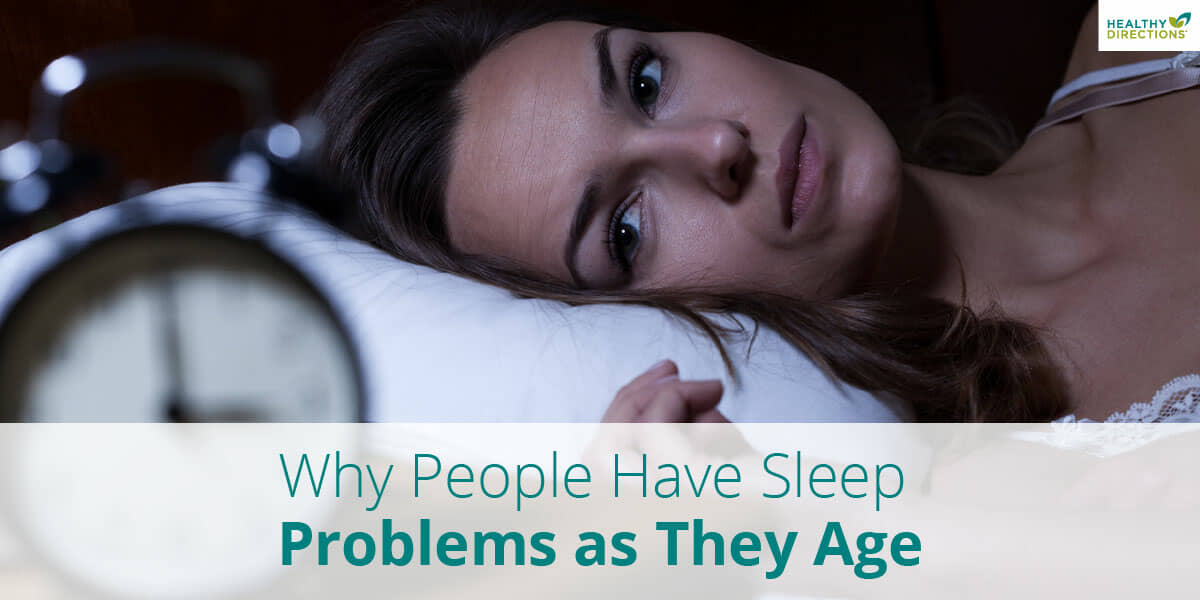If you have problems sleeping, you’re not alone. It’s estimated that one in five Americans have some kind of sleep problem. Two of the most common issues are not being able to fall asleep at bedtime and waking up in the night and not being able to fall back to sleep.
A number of factors can cause problems sleeping, many of which you are probably familiar with:
- Caffeine consumption
- Stress and worry
- Too much light in the bedroom
- Excessive noise
- Travel, especially across time zones
- Certain OTC and prescription medications
But there’s a lesser known—and arguably more important—cause of sleep problems: the natural age-related decline in our body’s ability to produce melatonin.
Sleep Problems Usually Increase Around Age 50
Melatonin is the hormone that naturally regulates our internal body clock and sleep cycle. It’s produced in the pineal gland when we’re exposed to darkness, and it signals the body that it’s time to sleep. In response, the body prepares to fall asleep and we begin to feel drowsy.
People who produce healthy levels of melatonin don’t typically experience sleep problems. But for people whose levels are lower than ideal, problems falling asleep and/or staying asleep are common.
Those of us over age 50 are particularly prone to sleep problems because of a natural decline in melatonin production that occurs as we get older. This reduction is linked to the gradual calcification of the pineal gland.
As the amount of glandular tissue in the pineal that’s capable of producing melatonin drops, so does our melatonin output. By the time a person reaches age 70, his or her “peak” melatonin levels are only about one-quarter or less of what they were as a young adult.
Restore Melatonin Levels to Solve Sleep Problems
Fortunately, age-related sleep problems aren’t something that you’re destined to live with. Research has shown that taking enough supplemental melatonin to restore your levels to what they were in young adulthood can help improve both sleep latency (the time it takes you to get to sleep) and sleep efficiency (the amount of time in bed that you spend sleeping).



